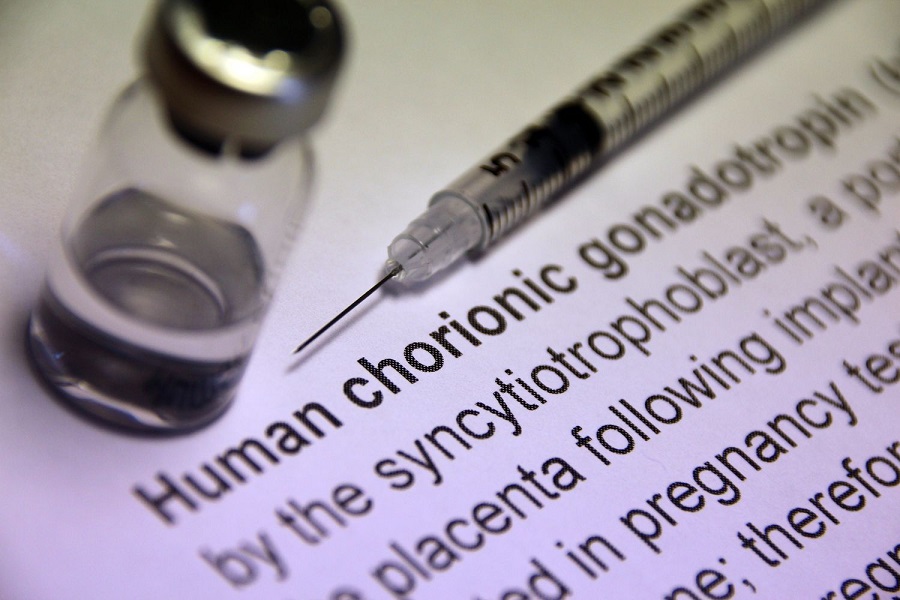HCG, or Human Chorionic Gonadotropin, is a vital pregnancy hormone produced by the placenta. It thickens the uterine lining, prevents menstruation, and is detectable in blood or urine ten to fifteen days after conception, peaking around the tenth week of pregnancy.
HCG Injections: Definition And Purpose:
HCG injections involve the administration of the synthetic form of the hormone through injection to stimulate essential hormones in both males and females, enhancing the chances of pregnancy. These injections are primarily used to address infertility issues in both genders.
Why Are HCG Injections Administered:
Females:
HCG injections boost ovulation and maintain progesterone levels in females, increasing the likelihood of pregnancy. Administered at the right time, they assist in releasing a mature egg from the ovary for fertilization.
Males:
For males with hypogonadism (insufficient testosterone production leading to a low sperm count), HCG injections stimulate the Leydig cells, the primary source of testosterone.
Preparing For HCG Injections:
HCG injections are given either intramuscularly or subcutaneously by licensed medical professionals. The process includes mixing lyophilized powder with sterile water using specific needle gauges. The prepared mixture can be refrigerated for later doses, with healthcare professionals overseeing preparation and dosage.
Places Of HCG Injection:
Patients typically receive the first dose from a healthcare provider and self-administer subsequent doses. The injections can be given in subcutaneous areas such as the lower torso, upper arm, external or internal thigh, or directly into muscles like the external limb or upper outer rear buttocks.
Adverse Reactions To HCG Injections:
Like any medication, HCG injections may cause side effects. Common adverse reactions include:
- Injection Site Discomfort: Mild soreness or inflammation at the injection site, more familiar with intramuscular injections, typically resolves in a few hours or days.
- Headache: Increased risk of blood clots in the head, necessitating medical attention for worsening headaches.
- Fatigue And Restlessness: Patients may experience exhaustion and restlessness post-injection, prompting doctors to advise rest for a few hours.
- Nausea: Some individuals may feel nauseated after receiving HCG injections.
The Significance Of Health Insurance:
Given the potential complexities of pregnancies, especially in cases of infertility treatments, having a robust online health insurance plan is vital. A health insurance plan helps cover medical costs from illnesses, injuries, or critical diseases. It can include coverage for inpatient care, pre-and post-hospitalization expenses, and even complications related to pregnancy. The Arogya Sanjeevani policy provides comprehensive health coverage, ensuring individuals have access to essential medical services and financial support in times of need. Claims are subject to terms and conditions set forth under the health insurance policy. *
Insurance providers offer online customizable family health insurance plans tailored to financial and health requirements. Expectant mothers, particularly those with complicated pregnancies, benefit from the coverage provided, including protection against COVID-19, ensuring prompt and comprehensive medical treatment. You can utilise a health insurance premium calculator to estimate the costs of premiums to be paid. Claims are subject to terms and conditions set forth under the health insurance policy. *
HCG is a pivotal hormone in pregnancy, and its synthetic form, administered through injections, serves as a valuable tool in addressing infertility. Having a comprehensive online health insurance plan ensures financial readiness for any unforeseen medical emergencies during pregnancy and beyond.
*Standard T&C Apply
Insurance is the subject matter of solicitation. For more details on benefits, exclusions, limitations, terms, and conditions, please read the sales brochure/policy wording carefully before concluding a sale.








